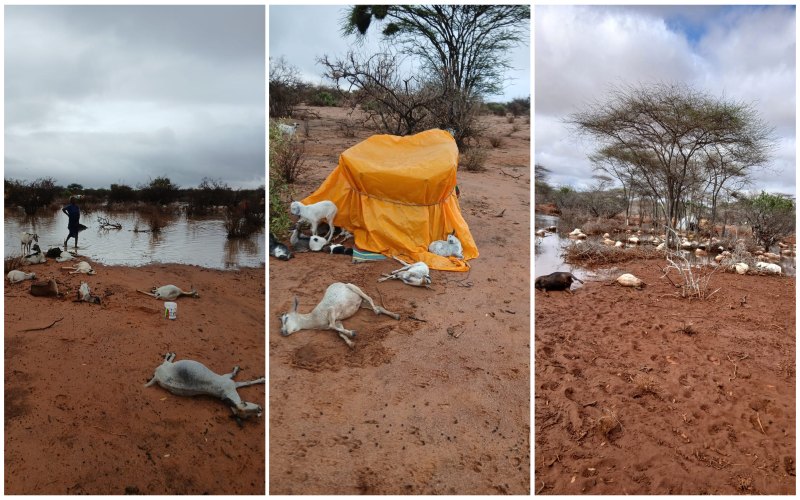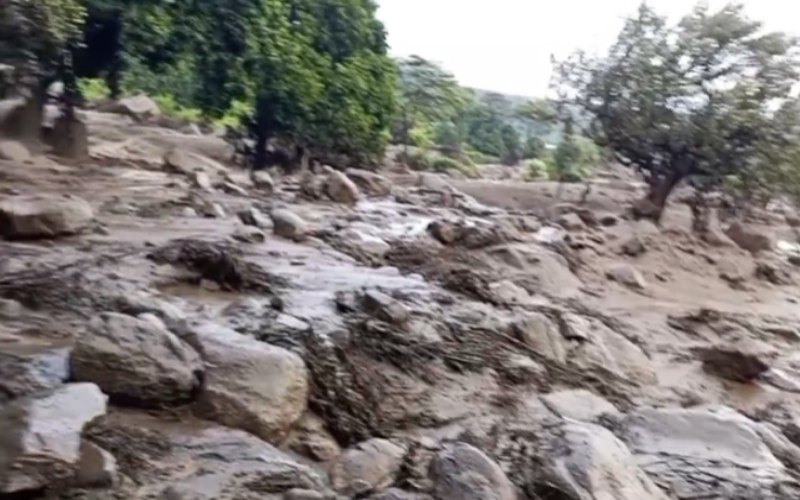Governor Lenku calls for action against elephant trophy hunting along Kenya-Tanzania border

The governor emphasized that the free movement of elephants across borders highlights the need for collective action in preserving biodiversity and ensuring the long-term survival of the creatures.
Kajiado County Governor Joseph Ole Lenku has called for urgent action following incidents of elephant trophy hunting occurring on the Tanzanian side of the Kenya-Tanzania border.
Ole Lenku noted that in recent months, three elephants have died due to trophy hunting within Tanzania, marking a concerning violation of established conservation agreements.
More To Read
- KWS rescues cheetah cub raised by woman in Garissa
- Chad cuts ties with Prince Harry's wildlife charity over alleged poaching
- Senate turns heat on Tata Chemicals over Sh10 billion land rates amid Kajiado’s financial struggles
- World Animal Protection urges Kenya to ban cruel commercial wildlife farming
- Kenya faces rising human-wildlife conflicts with 255 dead amid habitat loss, poaching
- KFS deploys drones to boost security, monitoring in Karura Forest
"This alarming development underscores the urgent necessity for heightened vigilance and decisive action to uphold conservation efforts in the region. This matter weighs heavily on us as we share this transboundary resource and acknowledge the vital importance of collaborative conservation endeavors in preserving our natural heritage," he said in a statement on Friday.
He noted that for more than three decades, there has been a ban on hunting elephants for trophies. The measure was implemented due to their immense value to global heritage, tourism promotion, and scientific research. However, recent developments have sparked concerns.
He said the elephants inhabiting both the northern Tanzania and Kenya regions symbolize the intricate interconnectedness of ecosystems and stand as a testament to the critical significance of transboundary conservation efforts.
The governor emphasized that the free movement of elephants across borders highlights the need for collective action in preserving biodiversity and ensuring the long-term survival of the creatures.
In this regard, Ole Lenku called for adherence to established conservation agreements and urged for heightened vigilance and decisive action to address the alarming trend of elephant trophy hunting.
Additionally, he raised concerns regarding the issuance of additional hunting permits, noting that it exacerbates anxiety about the future of elephants and the efficacy of conservation strategies.
The governor called upon Tanzanian counterparts to consider the long-term implications of such actions and join in efforts to safeguard shared natural resources.
"While we respect the sovereignty of each nation, we adhere to international frameworks governing the management of transboundary resources, which are imperative at both global and regional levels. Through our participation in the East African Cooperation and our Legislative Assembly, we are committed to transborder conservation policies," he said.
He urged relevant authorities, including the East African Legislative Assembly, to halt the devastation of African elephants and reaffirm their commitment to transboundary conservation initiatives for the benefit of present and future generations.
Kenya banned elephant hunting in 1973. It then followed that up with a ban on all animal hunting without a permit in 1977.
However, in 2018, Tanzania lifted a ban on hunting that had been imposed in October 2015 following abuse and misuse of hunting permits. The government said the ban on resident hunting was aimed at controlling the wanton killing of wildlife and poaching by holders of resident hunting permits.
Top Stories Today











































